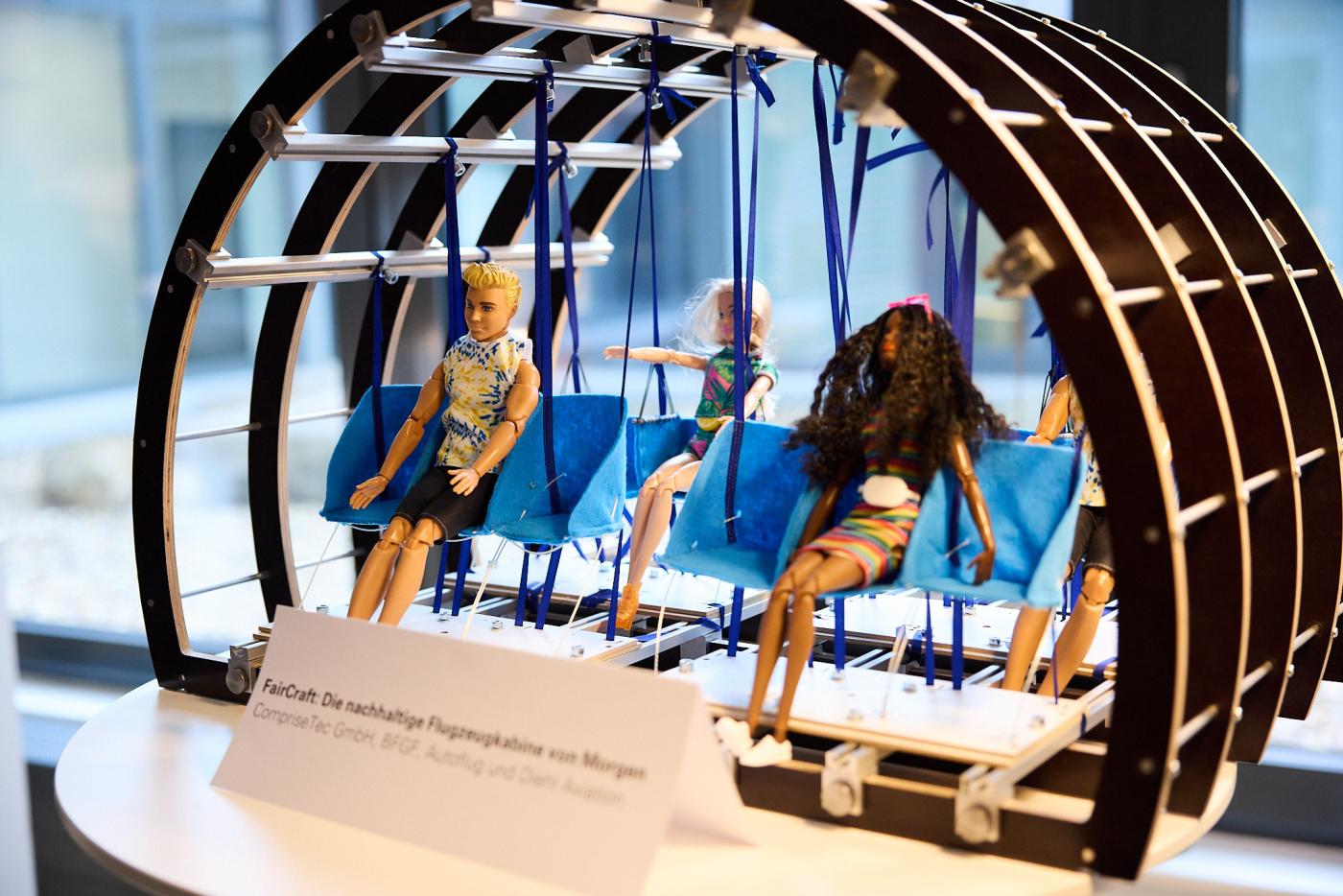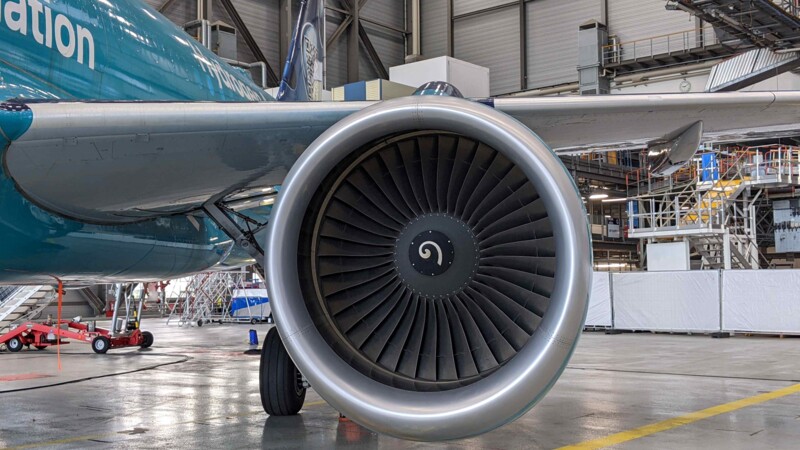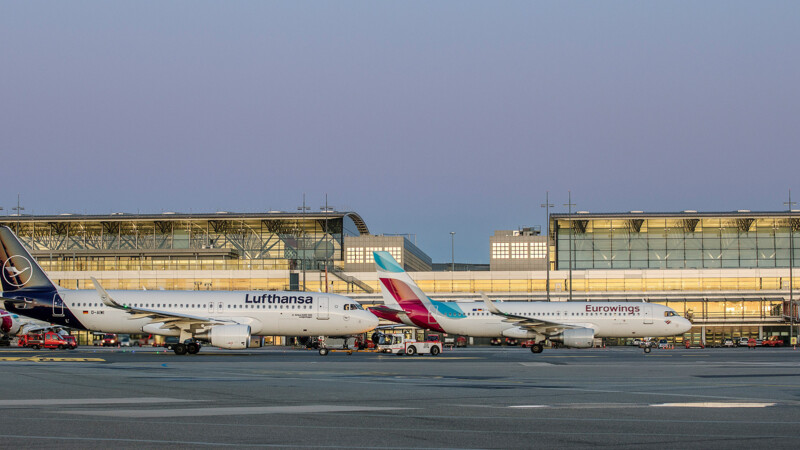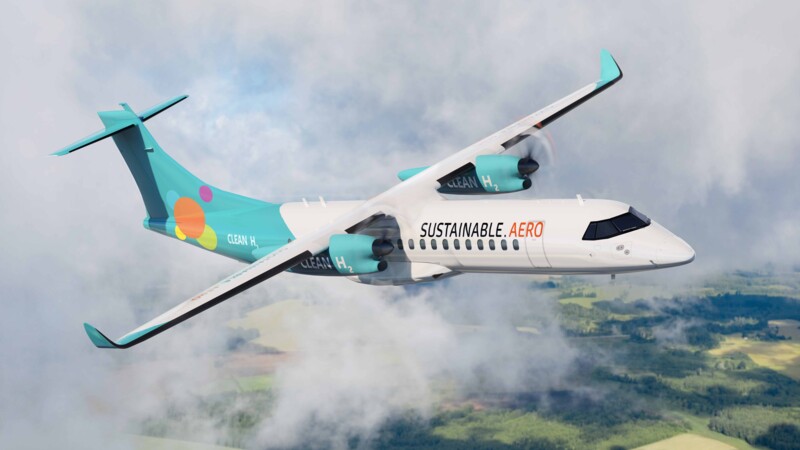A cradle-to-cradle aircraft seat is a first step towards more sustainable aviation and to revolutionary cabins. The idea was born during the 4th Cross Innovation Lab, which was held under the motto of "Climate Neutrality" in 2021. At the time, FAIRcraft fast-forwarded to 2030 with their efficient and resource-saving aircraft that has since become standard in aviation. Textile seats are suspended from ceiling to floor and are no longer anchored to the floor. Recyclable wall fixtures have been installed using a click system. All this significantly reduces weight and CO2 emissions.
Can aviation and environmental protection be reconciled in future? Aviation research is working towards this goal, with an increasing focus on sustainable fuels and new propulsion technologies. The FAIRcraft project, on the other hand, focuses on making aircraft cabins recyclable. To this end, the Hamburg Aviation cluster has brought together creatives and aviation stakeholders in the Cross Innovation Lab managed by Hamburg Kreativ Gesellschaft. Participants spend six weeks brainstorming and focusing on innovations, from field research to a workshop phase to come up with ideas and prototypes such as a fully recyclable aircraft seat.
Fast forward to 2030

Huge potential for saving CO2 savings
The new seats were the brainchild of designers Florian Hättich, Indeed Innovation, and Sebastian Mends-Cole, BFGF Design Studios, while Dr Claudia Rinke, author and storyteller, created the narrative of an environmentally conscious future. The creative team was complemented by various aviation experts namely André Herbst, Autoflug, Christian Keun, CompriseTec, Ann-Christin Krohn, Cradle to Cradle NGO, Gaston Pukies, Capgemini engineering), Sandro Stefani, Ylipson, Karsten Wistuba, Cradle to Cradle NGO, and Florian Zager-Rode, Diehl. These inventive, lightweight seats hold huge savings potential as a fully recyclable aircraft seat returned to the production cycle can save almost 40 tonnes of CO2 in the manufacture of an A320 alone. The weight reduction could potentially save more than one tonne of CO2 on short-haul flights. In 2022, this bright idea won over experts at IFB Hamburg and FAIRcraft was included in the GATE funding scheme.
Making innovations take off
The weight-reducing, recyclable, lightweight materials that cut both fuel consumption and emissions was unveiled during this year’s Aircraft Interiors Expo (AIX). Ultimately, the team decided against a prototype for more aerodynamic aircraft models, which are still a long way off. A compelling cabin innovation, on the other hand, is more likely to become reality in the near future. On average, cabin components are replaced every four to eight years. All kinds of bright new ideas for aircraft cabins and passenger experience will be presented during the next (AIX) underway in Hamburg from April 8-10, 2025 and is ideal for getting innovative ideas off the ground.
ys/pb
Sources and further information
Cross Innovation Lab
The Cross Innovation Lab is part of the Cross Innovation Hub run by Hamburg Gesellschaft in which an interdisciplinary team of professionals and employees develop innovative products, services or processes for about six weeks. CRH is jointly funded by the European Regional Development Fund. Different services, procedures, products and business models are rethought in new and innovative ways to strengthen the resilience and viability of companies in future.
More
Similar articles

Conference in Hamburg: Aviation does not have to a climate killer

Roland Gerhards, CEO of ZAL, gives glimpse of aviation in future

Sustainable Aero Lab driving sustainable aviation from Hamburg
